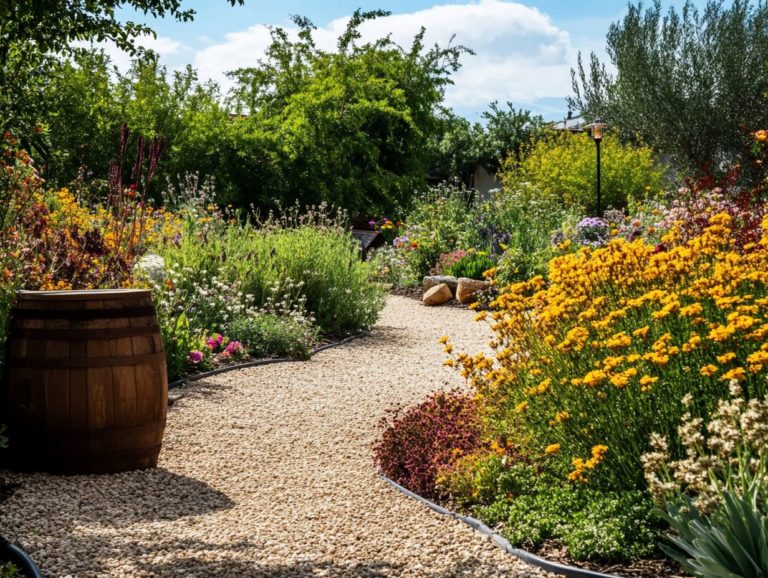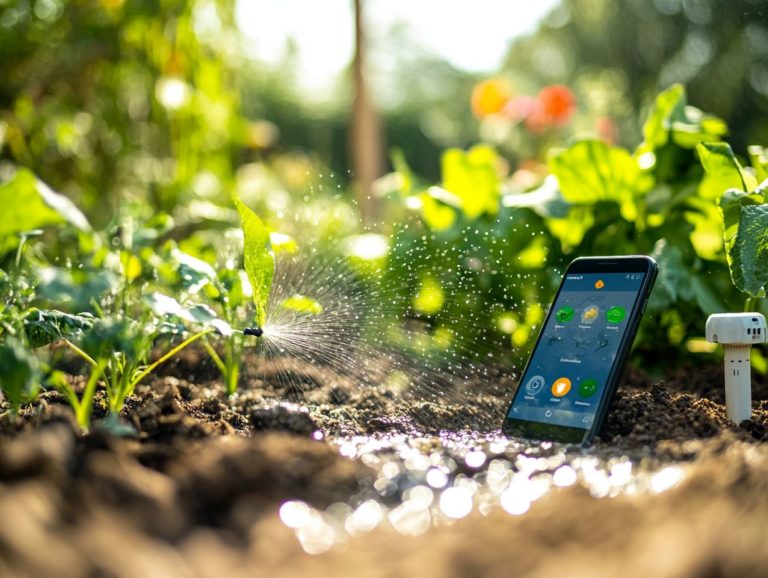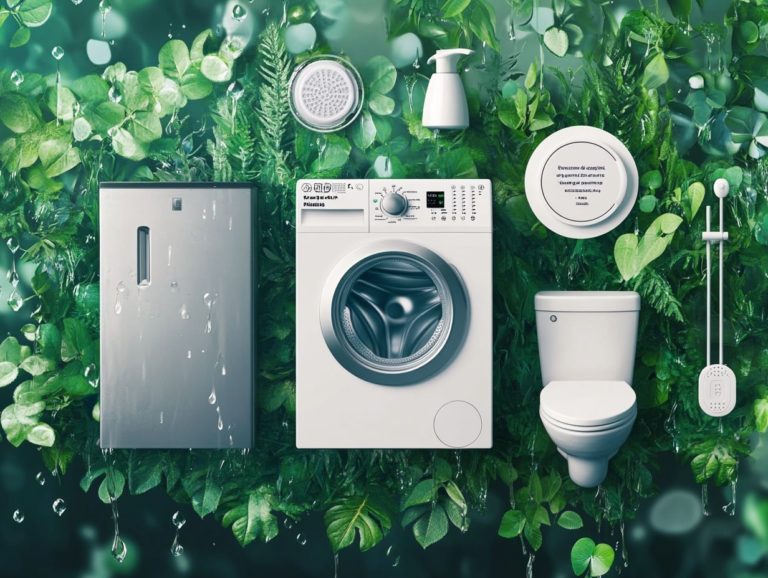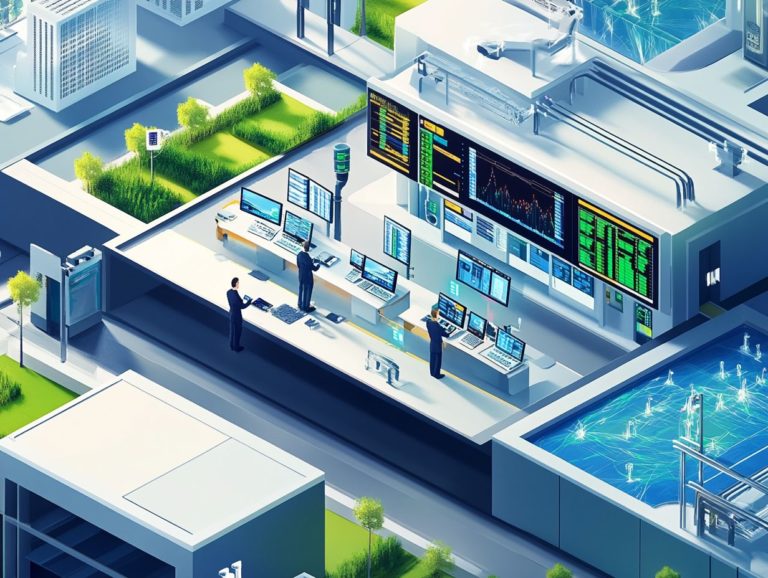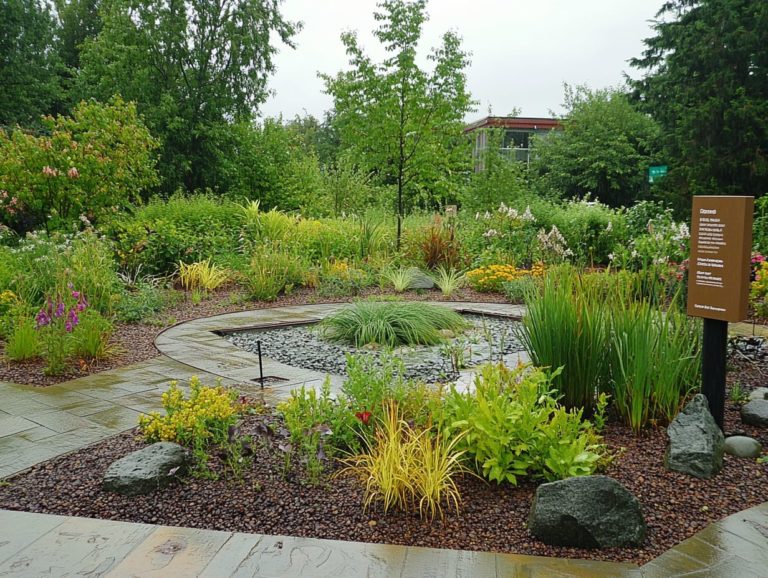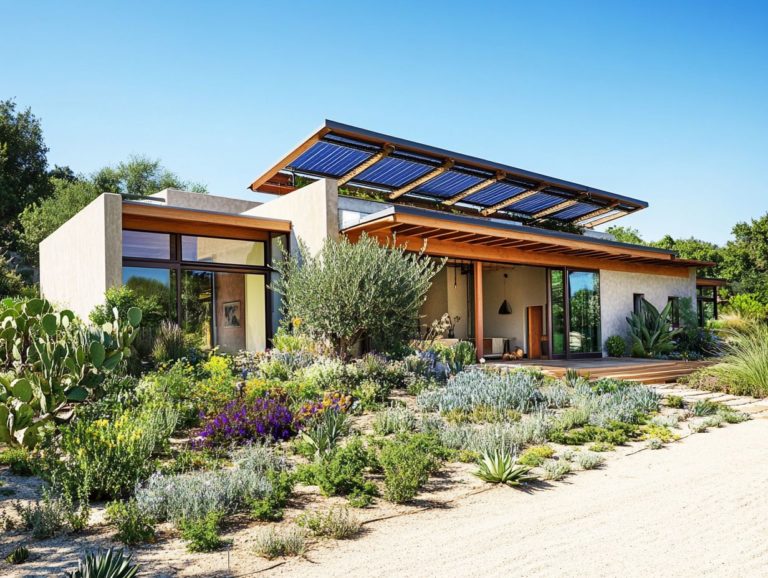5 Common Water Conservation Mistakes to Avoid
Water conservation has never been more critical. It’s easy to overlook simple mistakes that waste this invaluable resource.
From neglecting leaks to overwatering plants, these common missteps can accumulate faster than you might realize. You ll explore five key pitfalls to avoid, understanding not only the significance of conserving water but also the many benefits it offers.
Discover practical strategies for saving water in your daily life and insights on how to educate others about this vital issue. Start saving water today!
Contents
- Key Takeaways:
- 1. Not Fixing Leaks
- 2. Not Installing Water-Saving Devices
- 3. Overwatering Plants
- 4. Using a Hose Instead of a Bucket for Outdoor Cleaning
- 5. Not Checking for Water-Efficient Appliances
- Why Is Water Conservation Important?
- Frequently Asked Questions
- What are the 5 common water conservation mistakes to avoid?
- Why should I avoid using a hose instead of a watering can?
- Is leaving the tap running while brushing teeth a big mistake?
- Why is it important to fix leaky faucets?
- How can over-watering plants be harmful?
- Why shouldn’t I use a sprinkler system too frequently?
Key Takeaways:
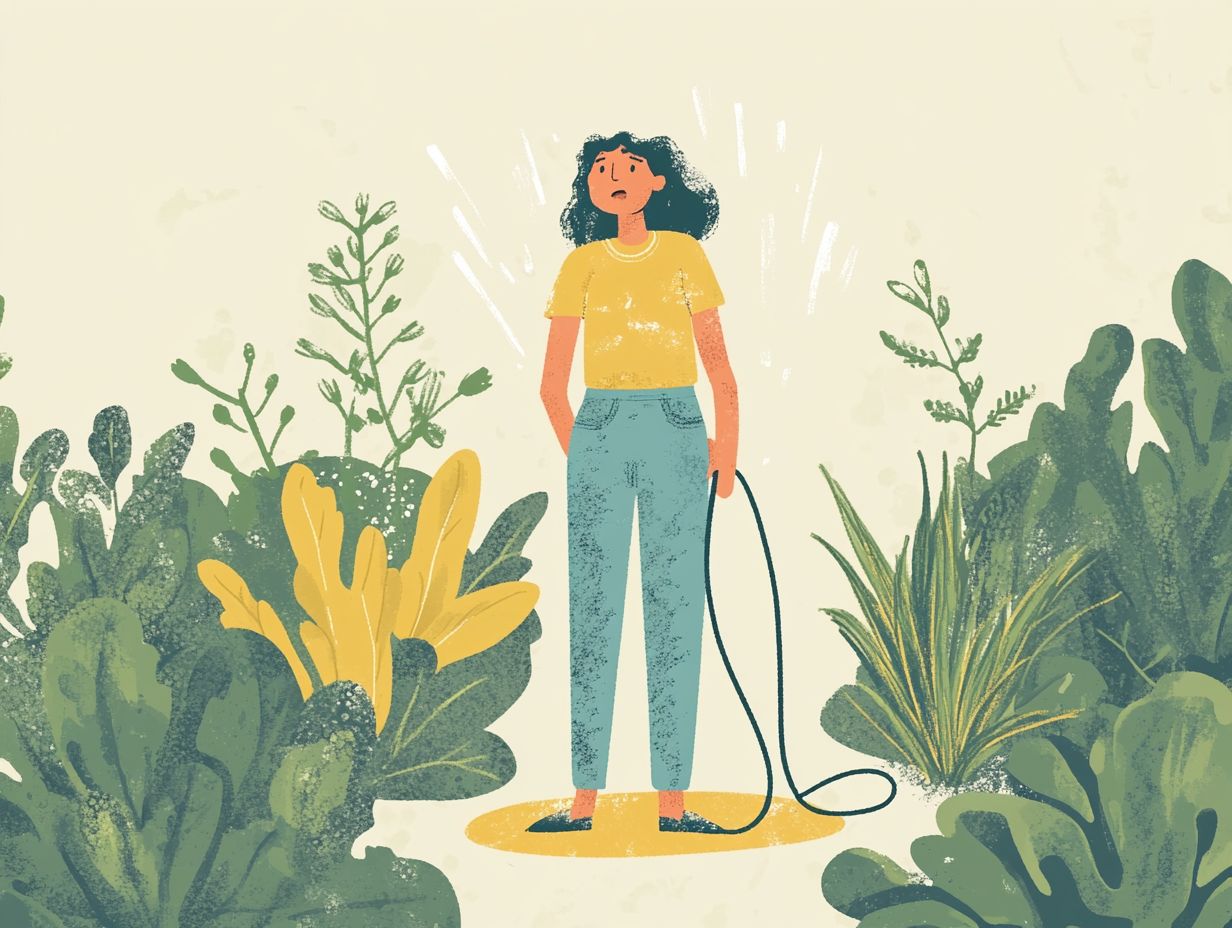
Fix leaks now to save water and money!
Install water-saving devices to reduce usage and lower utility bills.
Water only when necessary to avoid harming plants and wasting water.
1. Not Fixing Leaks
Neglecting plumbing leaks is a crucial mistake in your water conservation efforts. Even small leaks can lead to significant water wastage and increase your household water bill, worsening the global water scarcity crisis. To enhance your efforts, consider implementing some common water conservation tips.
Common leaks include dripping faucets, running toilets, and worn-out pipe joints. These issues can quietly deplete resources while causing your water bills to soar.
Don t ignore signs like wet spots or sudden spikes in bills act now to fix leaks!
Taking prompt action, preferably with the expertise of professionals like those at Mr. Rooter Plumbing, helps preserve water resources and protects your financial investments. Swift repairs can reduce the likelihood of larger, costly problems in the future.
2. Not Installing Water-Saving Devices
Installing water-saving devices, such as toilets and showerheads, is a simple yet powerful way to save water and adopt water-saving habits at home.
This change can lead to noticeable drops in your water bills, translating to long-term financial savings. Water-saving toilets that use just 1.28 gallons per flush or less can save you thousands of gallons each year.
When selecting these devices, look for the WaterSense label a label that indicates the product uses water efficiently. The installation process is often simple and can be a DIY project, saving on installation costs.
You can also enhance your water savings with high-efficiency appliances, like ENERGY STAR-rated dishwashers and washing machines.
3. Overwatering Plants
Overwatering plants squanders precious water and increases outdoor water use. It’s essential for homeowners like you to embrace drought-tolerant landscaping and eco-friendly practices to conserve water effectively.
Evaluate your landscape’s specific needs to create a tailored watering schedule that supports optimal growth without excess.
Incorporating drought-tolerant plants reduces watering frequency and boosts your garden’s resilience during dry spells. Rainwater harvesting can also lessen your reliance on municipal water sources, paving the way for sustainable landscaping.
These practices contribute to a healthier environment and lead to financial savings by lowering your water bills. By implementing these methods, you can cultivate a vibrant garden while playing a vital role in water conservation.
4. Using a Hose Instead of a Bucket for Outdoor Cleaning
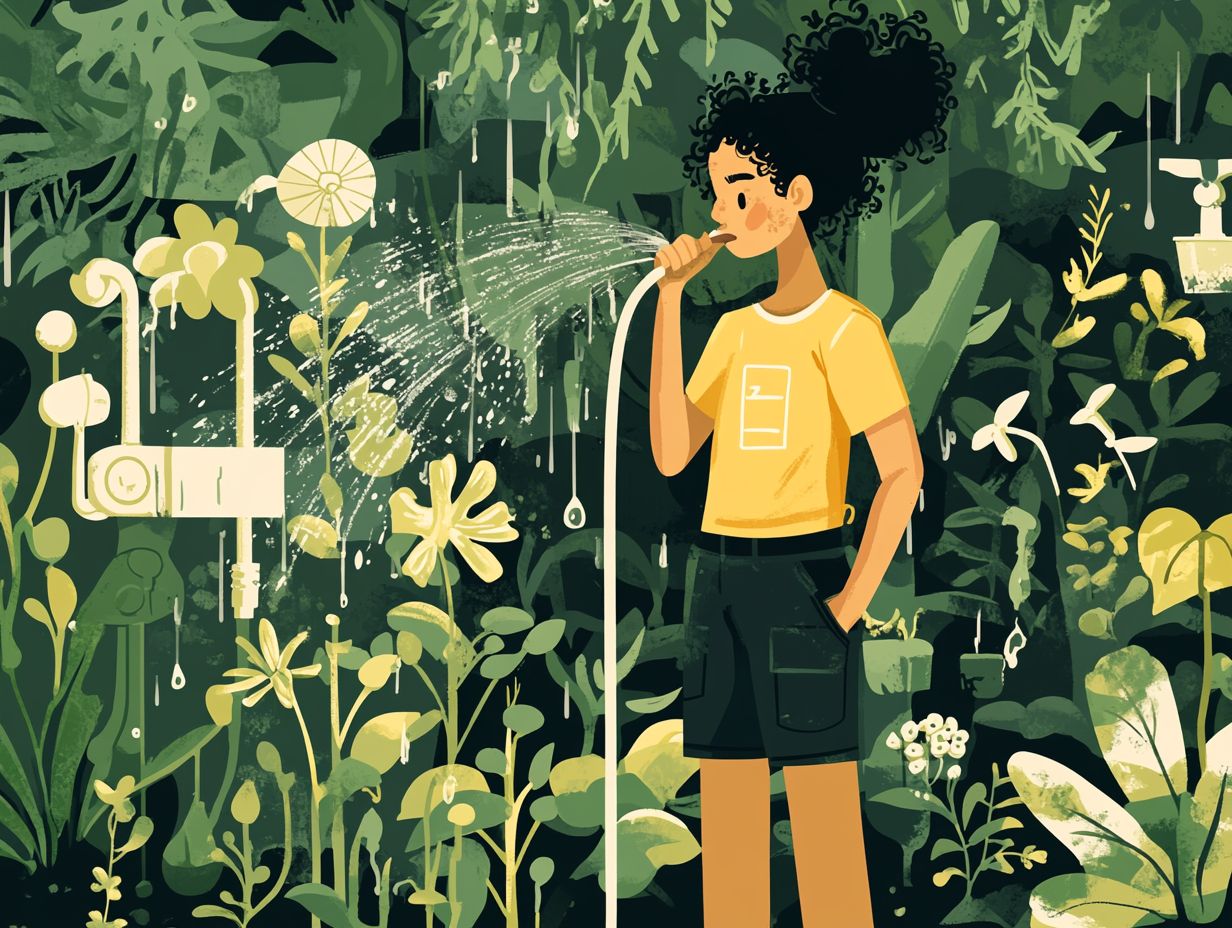
Using a hose instead of a bucket for outdoor cleaning can waste a lot of water, highlighting the importance of effective water conservation practices.
When washing cars or cleaning sidewalks, it becomes clear how much water a hose can waste. Using a bucket allows you to manage your water resources better.
Consider using rain barrels to collect runoff for your outdoor cleaning. This stored rainwater is great for rinsing patios or washing outdoor furniture without raising your utility bills.
By sweeping instead of hosing down driveways, you cut down on water use and create a more sustainable outdoor routine.
5. Not Checking for Water-Efficient Appliances
Check for water-efficient appliances in your home. Modern Energy Star-rated washers and devices are carefully designed to minimize water use and maximize efficiency.
Investing in these appliances helps you save money on utility bills and protects the environment. It’s a win-win!
Mr. Rooter Plumbing can help with the installation of these essential appliances. Their expert services ensure everything works perfectly and saves you water.
Why Is Water Conservation Important?
Water conservation is crucial for addressing water scarcity and meeting global demand. By adopting eco-friendly practices, you can help sustain water resources for the future.
Currently, over 2 billion people live in areas with high water stress. This situation hurts farming, disrupts local economies, and threatens biodiversity.
It’s vital to implement effective water conservation strategies. Simple actions like rainwater harvesting can significantly improve water availability.
Studies show that these strategies can cut household water usage by up to 30%. This connection between responsible water use and sustainable living is clear.
What Are the Benefits of Conserving Water?
Conserving water has many advantages. It lowers your water bills and helps the environment.
Using effective water-saving strategies can reduce monthly expenses. You can use those savings for other necessities.
Installing low-flow fixtures, like showerheads and faucets, cuts water use and saves money over time. These practices also relieve pressure on local water sources.
Transforming your landscape with drought-resistant plants reduces runoff pollution and supports local wildlife.
As you see, mindful water conservation positively impacts both your wallet and the planet.
How Can One Conserve Water in Their Daily Life?
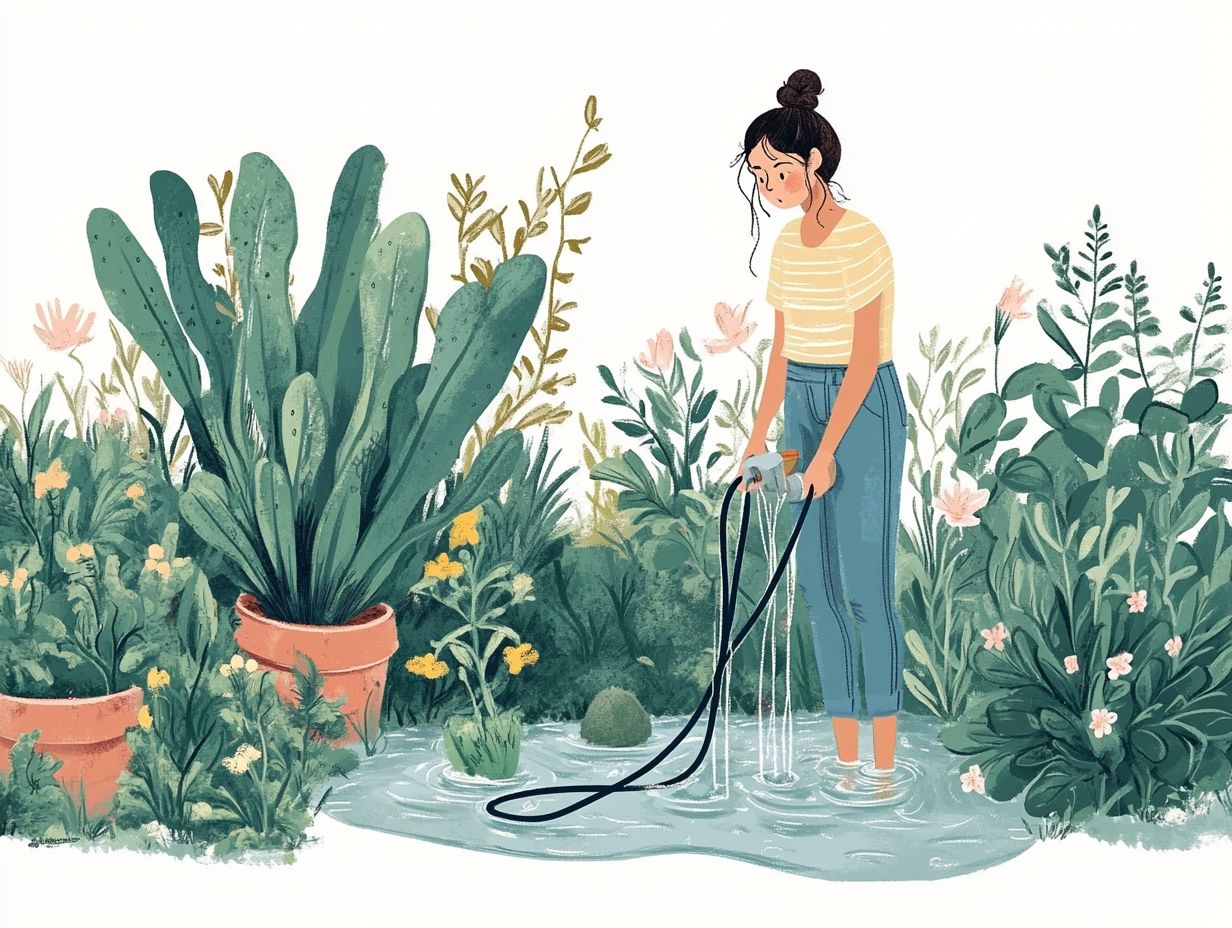
Implementing simple water-saving strategies in your daily life can greatly enhance your water conservation efforts. Focus on both indoor and outdoor water use while tackling plumbing leaks that contribute to waste.
By making small adjustments, such as taking shorter showers or installing faucet aerators, you can significantly reduce your indoor water consumption. You can also use drought-resistant plants instead of regular grass to minimize the need for regular irrigation.
Collecting rainwater in barrels provides an eco-friendly source for watering your garden, helping to preserve precious resources. Each of these changes leads to savings on your utility bills and supports broader efforts to conserve our planet’s vital water supply.
What Are Some Common Misconceptions About Water Conservation?
Despite its significance, several misconceptions about water conservation linger. Understanding the 5 must-have water conservation tools for homeowners can help you avoid underestimating the importance of reducing water usage and adopting eco-friendly practices within your home.
For example, you might think your small contributions don t matter, but every drop counts when multiplied across a community. Another common belief is that conserving water requires major lifestyle changes.
In reality, minor adjustments like fixing leaks or using water-efficient fixtures can make a noticeable difference. Clear up these myths now for easy water savings!
How Can One Educate Others About the Importance of Water Conservation?
Educating others about the importance of water conservation is essential for building community awareness. You can achieve this through workshops, social media campaigns, and educational resources focused on eco-friendly practices.
By organizing local events, you can bring neighborhoods together to share knowledge and experiences. Engaging schools with interactive presentations can inspire young minds to prioritize conservation in their daily lives.
Utilizing visual aids and informative pamphlets helps individuals recognize their role in this collective effort. Such initiatives enhance understanding and spark conversations within families and friends, fostering a strong community commitment to protecting this vital resource.
What Are Some Innovative Ways to Conserve Water?
You can save water using clever methods like rainwater harvesting and greywater systems. These methods enhance environmental sustainability and lower utility bills, making them a win-win.
For example, you can install rainwater harvesting systems to collect rainwater for irrigation, washing vehicles, or flushing toilets. This provides a reliable source of non-potable water.
Similarly, greywater systems recycle water that comes from sinks, showers, and laundry, redirecting it for landscape irrigation. Homeowners who embrace these technologies often notice a significant drop in their water consumption, showcasing their practicality in everyday life.
Frequently Asked Questions

What are the 5 common water conservation mistakes to avoid?
The 5 common water conservation mistakes to avoid are:
- Using a hose instead of a watering can.
- Leaving the tap running while brushing teeth.
- Not fixing leaky faucets.
- Over-watering plants.
- Using a sprinkler system too frequently.
Join the movement! Start conserving water in your home now and make a difference.
Why should I avoid using a hose instead of a watering can?
A hose can waste a lot of water. Its strong pressure may lead to over-watering or spray water outside the intended area.
Is leaving the tap running while brushing teeth a big mistake?
Yes, it’s a wasteful habit. A running tap can waste up to 2 gallons of water every minute, adding up quickly!
Why is it important to fix leaky faucets?
Leaky faucets waste more water than you may think. Even a small drip can waste up to 20 gallons a day, leading to higher bills.
How can over-watering plants be harmful?
Over-watering can drown plant roots and make them sick. It also wastes water and increases your water bill.
Why shouldn’t I use a sprinkler system too frequently?
Using a sprinkler too often can cause over-watering. It can also create runoff that carries pollutants into our waterways. Use it only when necessary!

